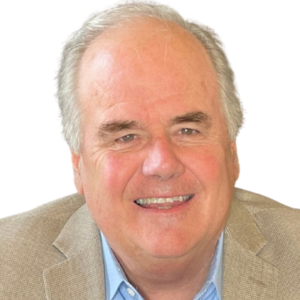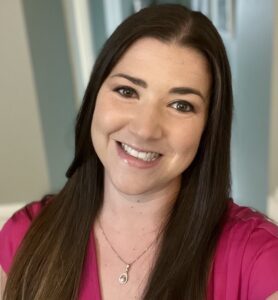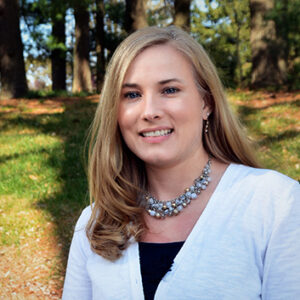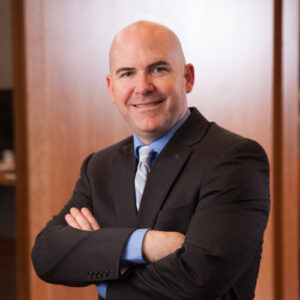Colleges Take an Innovative Approach to Recruiting and Training New Nurses
As healthcare systems brace for an escalating nursing shortage, the industry faces critical staffing challenges in the decade ahead. The Hospital and Health System Association of Pennsylvania projects that Pennsylvania will experience “the worst nursing shortage in the nation by 2026 and the third worst shortage of nursing support professionals and mental health providers.”
In response to the healthcare staffing crisis, the Association of Independent Colleges and Universities of Pennsylvania (AICUP) is taking an innovative approach to meet the state’s nursing needs.
How Pennsylvania Programs and Partnerships Train More Nurses

Thomas P. Foley, president of AICUP
Multiple colleges within the AICUP have developed innovative programs to help alleviate the nursing shortage. “AICUP is an association of 85 independent nonprofit colleges and universities in Pennsylvania, and the individual schools are diverse in their character and mission,” says Thomas P. Foley, president of AICUP. “At AICUP, we have been inspired to see the individual initiative and spirit of our member schools. These colleges are enthusiastically working to attract and train more students today to be the nurses of tomorrow. They saw the looming crisis and nursing shortage, rolled up the sleeves of their scrubs and did something about it.”
While the schools are working toward a common goal, they’re doing so independently. “They encourage one another and share a common purpose to provide the best education possible for Pennsylvania, but each school’s work and projects are their own,” Foley explains.
Many of the projects are new in 2024, but several have been ongoing efforts for the past few years.
The projects can be grouped into four categories:
- Encouraging new age groups to consider a career in nursing (including K-12 and retirees).
- Scaling up facilities, increasing offerings, and building new spaces for more nursing students.
- Expediting graduation time through new dual enrollment and accelerated programs.
- Assisting students in making nursing school affordable and accessible through new transfer agreements and increased institutional aid and grants.
While there are too many programs to mention in one article, we highlight a variety of innovative initiatives below.
Encouraging New Age Groups to Consider a Career in Nursing
UPenn offers K-12 pipeline programs, including a program for high school students in grades 10 through 12 who are interested in pursuing science and medicine careers. Participants attend four workshops led by expert clinicians and scientists, and engage in small group discussions, demonstrations, and hands-on lab activities on topics like female reproductive anatomy and physiology, stem cells, genetics, and epigenetics. The program is free to Philadelphia area school students.
Jefferson Health’s Nurse Emeritus Program gives recently retired nurses the chance to return to their practice, mentoring and guiding nurses who are new to the field. Retired nurses must have been part of the workforce within the last three years, and they will receive training prior to starting the program. Existing nurses can learn from the returning retirees’ experience, and the returning nurses have a chance to positively impact future generations of healthcare professionals.
Scaling Up Facilities, Increasing Offerings, and Building New Spaces for More Nursing Students
AICUP schools including Chestnut Hill College, Lebanon Valley College, Thiel College, and Saint Joseph’s, have all recently launched new nursing programs.
Schools are also leveraging technology to bolster their existing programs. Villanova’s M. Louise Fitzpatrick College of Nursing uses virtual reality in nursing classes. Through the use of virtual reality, students can engage in scenarios such as caring for patients with heart failure, administering medication to numerous patients, and working on a postoperative hip replacement surgery case.
Widener University School of Nursing’s new Anna Mosco and Marietta Borinski ’80 Simulation Laboratory gives students a chance to participate in clinical experiences using an oculus headset. Students can practice skills before they ever enter a clinical setting, and can also be put in scenarios that they might not encounter while on a clinical rotation.
Expediting Graduation Time Through Dual Enrollment and Accelerated Programs
Dual enrollment programs allow students to take concurrent courses in community college or high school, shortening the time until they are able to graduate and join the nursing force. At Harrisburg University, students may choose from traditional or dual enrollment. Harrisburg University also offers a “College in the High School” option which allows students to take dual enrollment courses while they’re still in high school.
Holy Family University has designed an option to appeal to individuals who have already earned a bachelor’s degree in a non-nursing field. The university’s accelerated BSN degree program is a distance program that only requires one week of residency at the Philadelphia campus, and students can earn their BSN in less than two years.
Assisting Students in Making Nursing School Affordable and Accessible
In addition to offering scholarships to nursing students, AICUP schools are taking additional measures to make nursing school more affordable. Cedar Crest College steeply reduced tuition for all of its nursing programs in June 2024. Community colleges and AICUP member nursing schools have established transfer agreements to help keep education costs down for nursing students. For example, the Harrisburg Area Community College and AICUP transfer agreement includes discounts and free textbooks for students’ first semester at Messiah University.
The Future of Nursing in Pennsylvania – and the United States
The bottom line? Pennsylvania – and the rest of the country – needs more nurses. “We’re facing a severe hospital staffing shortage,” Foley says. The Hospital and Health System Association of Pennsylvania’s prediction that the state will have the worst nursing shortage in the nation in a few short years is eye-opening. “So, it is our hope that these 43 AICUP members – all independent nonprofit nursing schools – will help turn the tide now before it’s too late,” explains Foley. “Our colleagues at the AICUP colleges are doing their part to fix the nursing shortage.”

Paige Cerulli is a contributing writer to i Advance Senior Care.
Related Articles
Topics: Featured Articles , Staffing , Training











